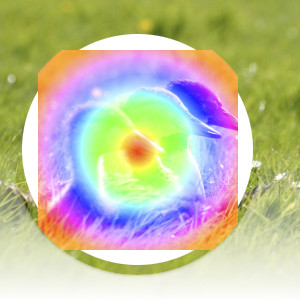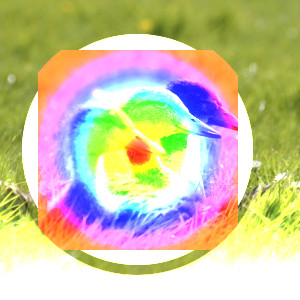The „Lighten“ group contains layer modes that make the result lighter.
- Tik pašviesinti
-
Pav. 8.14. Sluoksnio veiksenos „Tik pašviesinti“ pavyzdys
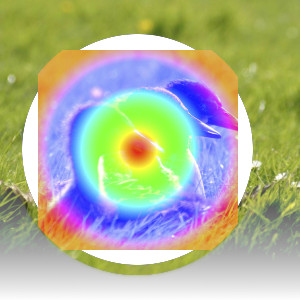
Top layer at 100% opacity using „Lighten only“ mode.
Naudojant veikseną visi aukštesniajame sluoksnyje esančių pikselių komponentai palyginami su atitinkamais žemesniajame sluoksnyje esančių pikselių komponentais, o gautajame paveikslėlyje naudojamos didesnės reikšmės. Naudojant visiškai juodus sluoksnius galutinis rezultatas visiškai neįtakojamas, o naudojant visiškai baltus sluoksnius gaunamas baltas paveikslėlis.
The mode is commutative; the order of the two layers doesn't matter (except for transparent areas in the bottom layer).
- Luma/Luminance lighten only
-
Pav. 8.15. Example for layer mode „Luma/Luminance lighten only“
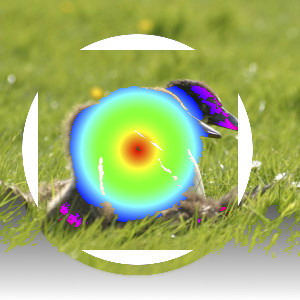
Top layer at 100% opacity using „Luma/Luminance Lighten only“ mode.
mode compares the luminance of each pixel in the upper layer with the corresponding one in the lower layer and uses the larger value in the resulting image. Completely black layers have no effect on the final image and completely white layers result in a white image. Luma is the perceptual version of Luminance.
The mode is commutative; the order of the two layers doesn't matter (except for transparent areas in the bottom layer).
- Ekranas
-
Screen mode inverts the values of each of the visible pixels in the two layers of the image. (That is, it subtracts each of them from 1.0.) Then it multiplies them together, and inverts this value again. The resulting image is usually brighter, and sometimes „washed out“ in appearance. The exceptions to this are a black layer, which does not change the other layer, and a white layer, which results in a white image. Darker colors in the image appear to be more transparent.
Ši veiksena yra komutatyvi; šių dviejų sluoksnių tvarka yra nesvarbi.
- Šviesinimas
-
Dodge mode divides the pixel value of the lower layer by the inverse of the pixel value of the top layer. The resulting image is usually lighter, but some colors may be inverted.
Fotografijoje šviesinimas – tai technika naudojama tamsiame kambarėlyje norint padidinti konkrečių paveikslėlio sričių išlaikymą. Taip šešėliuose išgaunamos detalės. Naudojant šiuo tikslu šviesinimas geriau veikia pilkų atspalvių paveikslėliuose naudojant piešimo įrankį, o ne kaip sluoksnio veikseną.
- Pridėjimas
-
Pav. 8.18. Sluoksnių veiksenos „Pridėjimas“ pavyzdys
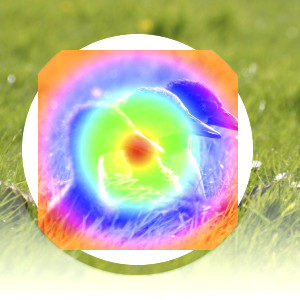
Top layer at 100% opacity using „Addition“ mode.
Addition mode is very simple. The pixel values of the upper and lower layers are added to each other. The resulting image is usually lighter. The equation can result in color values greater than 1.0.
Ši veiksena yra komutatyvi; šių dviejų sluoksnių tvarka yra nesvarbi.
